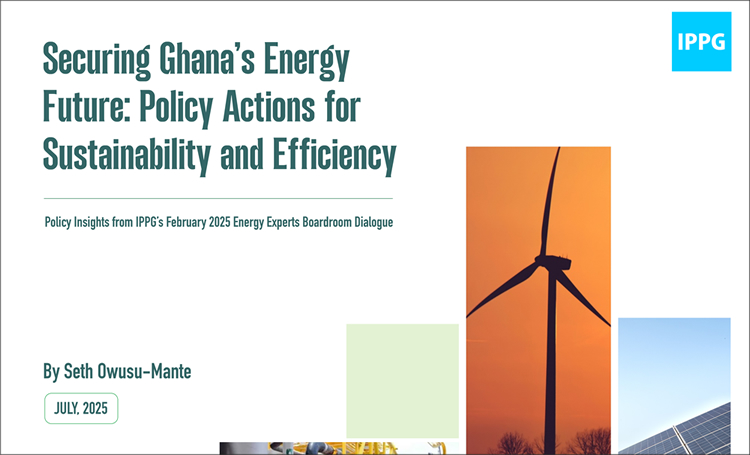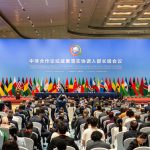Securing Ghana’s Energy Future꞉ Policy Actions for Sustainability and Efficiency

This report presents a critical assessment of Ghana’s energy sector, drawing on insights from a high-level expert boardroom convened by the International Perspective for Policy and Governance (IPPG) in February 2025. It brings together perspectives from energy professionals, industry leaders, academia, and civil society to examine the sector’s enduring challenges and propose actionable solutions to inform policy and investment decisions.
The analysis reveals a sector marked by upstream stagnation in oil and gas investment, midstream gas supply reliability issues, and the Electricity Company of Ghana’s (ECG) chronic financial instability and operational inefficiencies. Despite multiple policy frameworks aimed at supporting the energy transition, progress remains limited due to overlapping regulations, institutional fragmentation, and a lack of effective implementation. The continued dependence on expensive fossil fuel imports and the slow uptake of renewable energy further deepen the sector’s vulnerabilities.
Recognizing that technical and policy interventions alone are insufficient, the report underscores the need to address the underlying political economy dynamics that sustain inefficiencies and resist reform. It calls for a shift toward more assertive, politically informed advocacy and public engagement to drive accountability and transformative change.
To this end, the report outlines a phased reform agenda:
- Short-term: Enhance ECG’s commercial operations, stabilize upstream oil and gas investment, and accelerate critical gas infrastructure projects.
- Medium-term: Streamline regulatory frameworks, improve institutional accountability, and unlock distributed renewable energy solutions through revised policies.
- Long-term: Redefine the state’s role in energy delivery, encourage private sector participation, and position the sector as a catalyst for industrialization, economic resilience, and Ghana’s green transition.

 Previous Post
Previous Post Next Post
Next Post